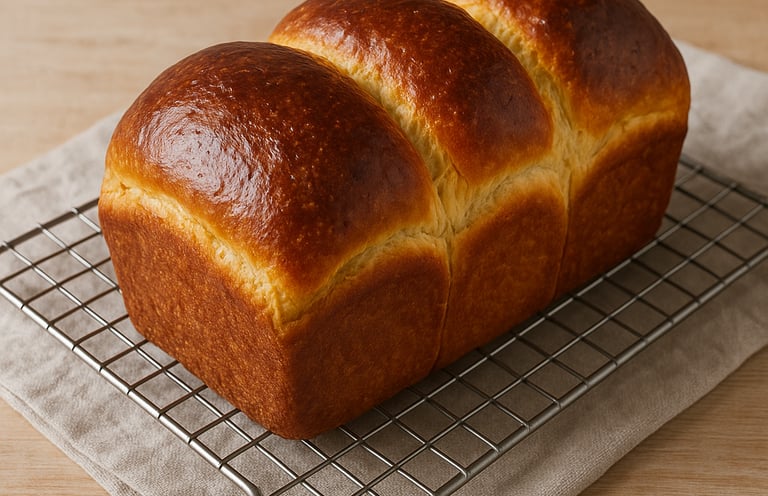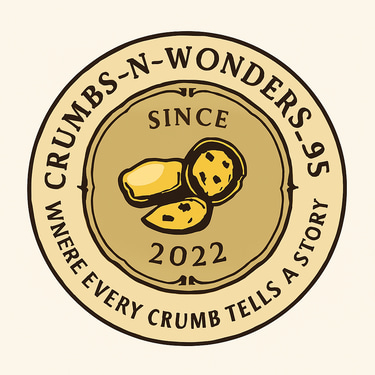Bread for a Broken World: A Home Baker’s Hope in Troubled Times
As war and heartless laws darken the world, a humble home baker finds peace in scripture - and invites us to knead hope into a crumbling world.
SOJOURNER
Wandering Armenian
7/3/20253 min read


Bread for a Broken World: A Home Baker’s Hope in Troubled Times
The newspaper crinkled in Miriam's weathered hands as she sat at her kitchen table that Saturday morning. Outside her window, the village of Ano Poroia stretched peacefully toward the Bulgarian border, the morning light catching the waters of Lake Kerkini in the distance. But the headlines before her painted a different picture entirely—wars raging across continents, children displaced from their homes, politicians who seemed to have forgotten what mercy meant.
At sixty-two, Miriam Papadopoulos had seen enough of the world's troubles to recognize when things were falling apart. She and her husband Alfredo had called this village home for over thirty years, raising two sons who now served with the Greek Red Cross in refugee camps up north. The house felt quieter these days, filled with the sounds of Alfredo tending his small poultry farm and the gentle hum of her own daily bread-making.
Miriam had left school early when her father died, helping her mother support the family. But she'd picked up enough Greek, English, and even some Turkish over the years to follow the weekly news delivery. And lately, that news left her heart heavy.
"Why is everything falling apart?" she whispered to herself, setting down the paper and moving to her kitchen counter where yesterday's dough waited for her attention.
Her kitchen was small and sun-drenched, flour permanently dusted into every corner, the perpetual scent of rising yeast her constant companion. Baking had become her prayer, her small act of defiance against a world that grew harder each day.
As she began kneading, muscle memory taking over, she remembered Pastor Mike's sermon from the previous Sunday: "Do not be overcome by evil but overcome evil with good." The verse from Romans had stuck with her all week, turning over in her mind like dough in her hands. She paused mid-knead, struck by a sudden thought. If the world was like bread gone bad—stale, cracked, hard to swallow—then maybe what it needed was what any failed loaf needed: fresh yeast, a fresh start, another chance to rise.
What if kindness could work like yeast? What if compassion could warm hearts the way her oven warmed dough? What if truth could preserve the community the way salt preserved bread? The idea took root as surely as any starter culture. That very afternoon, Miriam baked extra loaves. Come Friday, she was walking through the village with a basket full of warm bread and simple notes tucked under the crusts—messages of hope, reminders that someone cared.
She gave loaves to the Syrian family who'd recently arrived, unsure and unwelcome. She left bread at the door of Mrs. Kostas, the bitter widow who'd been spreading gossip about the refugees. She even brought a loaf to Yannis, the man who'd cheated Alfredo in a business deal years ago.
Word spread, as it does in small places. Other women from the church began baking alongside her. Mrs. Elena started making her grandmother's honey cake for the elderly. Young Sofia, home from university, organized the children to deliver bread to shut-ins.
"It wasn't world-changing," Pastor Mike would later reflect. "No peace treaties were signed, no wars ended. But hope—real hope—began to rise in our little corner of the world, like yeast working slowly through flour."
Miriam's kitchen became something of a headquarters for quiet resistance against despair. Flour, water, salt, and scripture—these became her tools for mending what felt broken. Where politicians had forgotten mercy, she would remember it. Where violence had stolen peace, she would knead it back into existence, one loaf at a time.
Standing on her small veranda one evening, watching the sunset paint Lake Kerkini gold, she spoke to old Dimitrios, the village president: "The world may be breaking apart, but I'll piece it back together—crumb by crumb, crust by crust, with God's love as my recipe."
Each morning, as she pulled golden loaves from her oven, Miriam would pray: "Lord, let me be your hands in this hurting world. Let your love rise again, here in this kitchen, in this village, in every heart that tastes this bread."
And somehow, in the simple aroma of baking bread and the quiet persistence of kindness, the world didn't seem quite so hopeless after all. In Ano Poroia, at least, something beautiful was rising.
What began as one woman's response to troubling headlines became a village-wide movement of practical hope—proving that even in our darkest times, the smallest acts of love can leaven an entire community.
“The Wandering Armenian”, would appreciate hearing back from you, please oblige the author with a few words that might help in the next story.
[The author has chosen the names of the characters to give his story more color and life. And Wandering Armenian”, would appreciate hearing back from you, please oblige the author with a few words that might help in the next story].

